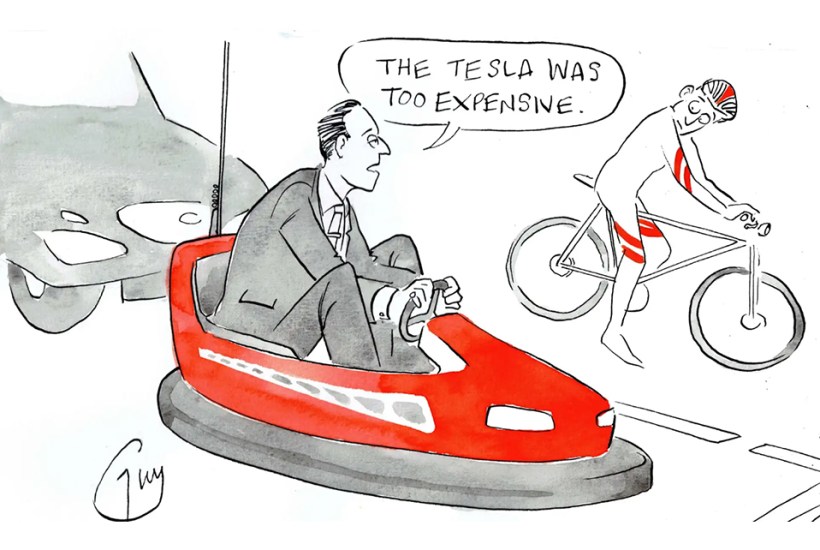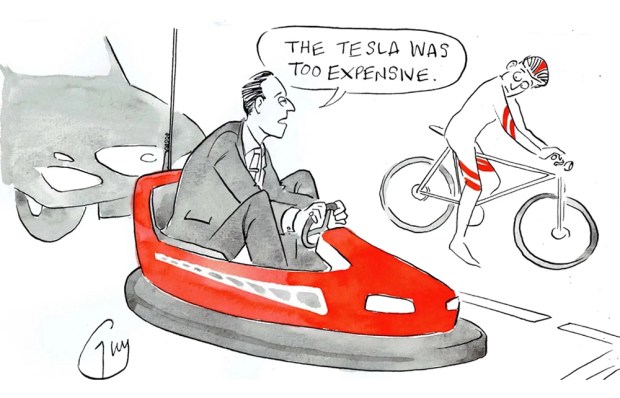Some excellent thinking this month from the Italian complexity theorist Luca Dellanna:
Two days ago, the EU parliament approved a ban on new fossil fuel cars starting in 2035. While I like the idea of greener cars, I’m not too fond of a fast and complete transition.
Let me use the metaphor of the Summer Olympic Games – an event with attractive economics during the planning phase that predictably overruns its budget by enormous amounts (an average of 213 per cent!).
Already a subscriber? Log in
Subscribe for just $2 a week
Try a month of The Spectator Australia absolutely free and without commitment. Not only that but – if you choose to continue – you’ll pay just $2 a week for your first year.
- Unlimited access to spectator.com.au and app
- The weekly edition on the Spectator Australia app
- Spectator podcasts and newsletters
- Full access to spectator.co.uk
Or
Unlock this article
You might disagree with half of it, but you’ll enjoy reading all of it. Try your first month for free, then just $2 a week for the remainder of your first year.















Comments
Don't miss out
Join the conversation with other Spectator Australia readers. Subscribe to leave a comment.
SUBSCRIBEAlready a subscriber? Log in